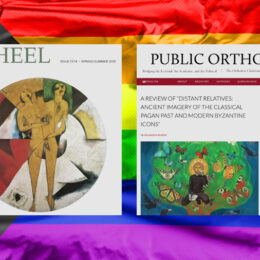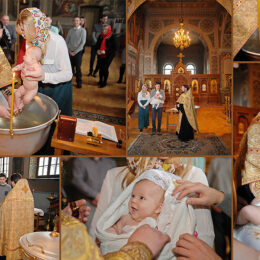AlbertMohler.com | Albert Mohler Jr. | Dec. 10, 2008
Secularization is the process by which a society becomes more and more distant from its Christian roots. Though the formal sociological theory is more complicated than that, the essence of secularization is the fact that the culture no longer depends upon Christian symbols, morals, principles, or practices. While most of the world is resolutely unsecular, much of Europe is pervasively secular — and this includes Great Britain.
Nevertheless, the secularization of society is one thing, but the secularization of the church is another. Yet, at least one major leader of the Church of England now assumes what can only be described as a secular vision of the church.
Writing in a new publication of the Institute for Public Policy Research in London, Dr. John Sentamu, the Archbishop of York, calls for the Church of England to represent people of all faiths, and those of no faith at all.
Writing in Faith in the Nation: Religion, Identity, and the Public Realm in Britain Today, the Archbishop argues that the Church of England deserves its place as the established church of Great Britain because it now serves as a “public utility” serving the common good.
As The Times [London] reported the story:
The Church of England should be open for use by people of any religion or none, like a hospital, says Dr John Sentamu, the Archbishop of York.
There is a strong case for regarding the Church as a public body that does not exist simply to serve believers, he argues. Whether or not most people attend regularly is irrelevant.
This is a strange and pathetic vision of the church. No longer the assembly of believers, the church is now defined merely as a public utility. What does this public utility do? It exists, he argues, in order to provide service such as education, funerals, and a context for important national events — such as, he suggests, the funeral of Princess Diana.
In his chapter in the book, Archbishop Sentamu argues that the Church of England serves as a public utility that offers services “at the point of need for populations who will sooner or later require their services.” Quoting researcher Grace Davie, a specialist on religion in Britain, Archbishop Sentamu explains that “the fact that these populations see no need to attend these churches does not mean that they are not appreciated.”
This has to be one of the strangest and most unbiblical concepts of the church ever to reach print. The church is now to be more or less on-call for a population that sees no need to attend these churches but nonetheless is assumed to appreciate the fact that they exist. Confused?
Well, the Archbishop goes on to cite Grace Davie again in proposing the idea of “vicarious religion.” As she explains, “vicarious religion” is “the notion of religion performed by an active minority but on behalf of a much larger number who (implicitly at least) not only understand, but quite clearly approve of what the minority is doing.”
Finally, the Archbishop argues that the church provides “faithful capital” for the society at large, building community and relationships and social cohesiveness. Of course, as he acknowledges, all this is supposed to come without much (if any) emphasis on actual Christian beliefs or teachings. As a matter of fact, he assumes that most people will never attend church anyway. Evidently, the Archbishop no longer sees that as much of a problem.
This is the end result of liberal theology — a thoroughly secularized church. This Archbishop celebrates multiculturalism and religious diversity. No urgent concept of evangelism is to be found in his essay, for he appears to believe that no such effort is needed.
. . . more




I remember back in the 80’s when I read an article in Time magazine about the rector of St. John the Divine Episcopal Church in New York was allowing Buddhist services, Muslim services, and even circus(!) acts to take place in their sanctuary! They also had a crucifix with an image of “Christa”, a female version of Jesus, on it.
Like most mainline Protestant denominations, the Anglican Communion is dying. A recent report stated that if the Anglican Church in Canada continues its current decline, it will have one member in the year 2060.